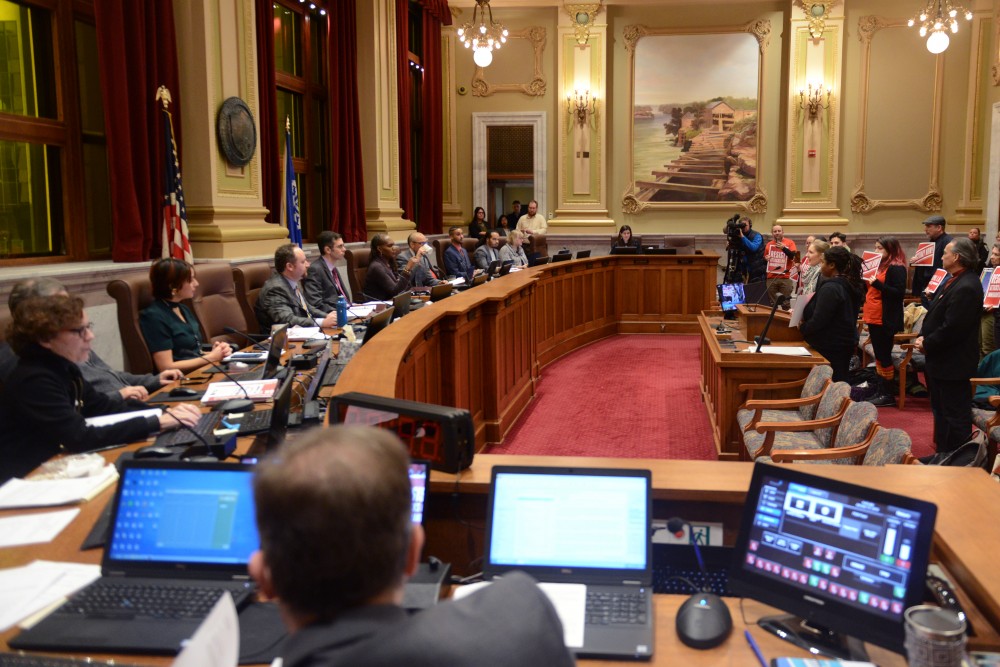The Minneapolis City Council has made one of the first moves to begin dismantling the current police department, but it is just the initial step in a long process.
The Council voted late last month to send a proposed charter amendment to the Charter Commission. The amendment would eliminate a requirement that the city fund officers in proportion with the population and would allow the council to eliminate the Minneapolis Police Department in favor of a new department of public safety.
Ward 2 Minneapolis City Council member Cam Gordon, who helped author the amendment, said the action is aimed at opening up the possibility of overhauling the police department and making room for new ideas.
“The current charter, which is very restrictive, very prescriptive, specifically identifies a minimum number of officers and identifies even where money could come from,” Gordon said. “I don’t think there would be those kind of constrictions … in the new department.”
Gordon said he hopes a new department would emphasize a more public health-oriented approach to public safety, including more resources for mental health and overdose crises rather than armed officers.
In order to change the city charter, the Council and Mayor Jacob Frey must either unanimously agree on a change, or it must go to a public ballot, which council members have opted for. Frey has repeatedly stated he does not support dismantling the police department. MPD is still operating under the city’s budget that was approved in 2019.
Before the amendment can go to a public vote, the city’s Charter Commission has up to 150 days to review it, meaning there is no guarantee it will make it onto a Nov. 3 ballot.
Unlike the Minneapolis Police Department, which the mayor oversees, the City Council would also govern the new public safety department. While the amendment would allow the city to disband the MPD, it does leave room for armed peace officers.
“I think mostly what it does is it changes the culture of public safety,” Ward 5 City Council member Jeremiah Ellison said during a presentation to the Charter Commission last week. “We will be able to deemphasize the role of armed use-of-force response to every issue … and we remove the monopoly on public safety away from the police department.”
If the charter amendment makes it through the commission and passes, the city will conduct a yearlong study to look at what a new public safety department could look like before it is established.
Because the city will not know what the new department will look like before the amendment heads to a ballot, Michelle Phelps, a University of Minnesota criminal justice professor, said it may be difficult for those spearheading the change to garner support.
Phelps said, “When people don’t really know exactly what’s being proposed, because the answer is nothing yet except, ‘Let us give ourselves more flexibility to make those changes once we completed that study’ — I think that’s the challenge.”








